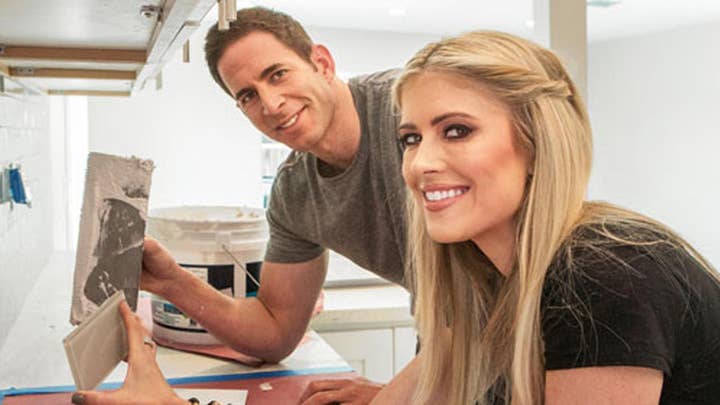HGTV: Three unrealistic scenarios featured on the channel
HGTV debuted 25 years ago and it has since become wildly popular. Real estate professionals say, however, that it sets unrealistic expectations. Here’s what some experts say are the biggest misconceptions.
It’s a four-letter phenomenon that Americans can’t imagine life without. But when HGTV debuted nearly 25 years ago, the idea of turning on the TV and being entertained by a bathroom renovation was ludicrous. Today, however, TV execs see home and garden improvement shows like "Property Brothers," "Fixer Upper," and "Love It or List It" as lucrative.
Unfortunately, their popularity comes at the expense of real estate professionals. Unlike viewers, these critics know firsthand that what makes for good reality TV can make for bad reality out in the real world.
Here are nine reasons the experts want you to turn off HGTV — now.
Knocking down walls isn’t that easy
Soap operas have kissing scenes and action movies have car chases. On HGTV, there’s usually always a scene where a wall or two get knocked down. That’s OK on shows like "Good Bones," but in real life, walls are often the last thing you want to touch.
“When someone buys a '90s-era home which was built quickly and on the cheap, we can’t rip out walls," says Teris Pantazes, a licensed contractor in Baltimore, and manager of EFynch. “It’s important for a home to have good bones. I have been in this business for a long time but I’m not an engineer. I still have customers question me and I see them waste tons of money to verify what I already told them.”
Transactions, and transformations, take a LOT of time
"The No. 1 problem with real estate television shows is that they significantly shorten the amount of time that almost anything takes, for the purposes of advancing the narrative,” explains Kevin Deselms. The Hollywood film-editor-turned-Colorado-Realtor®, says this gives his clients unreasonable expectations for timelines. For example, on “House Hunters” — which has been publicly called out for misleading viewers — prospective buyers only view three houses. That, and a lot of editing, is how home purchases happen in less than 30 minutes. (TLC’s hit show “Trading Spaces” practically invented the 48-hour room transformation, but the show also caught a lot of flak for leaving homeowners with things like shoddy work, wet paint and unfinished flooring.)
Negotiations don’t typically go down in coffee shops
"I wish clients would stop watching HGTV so I can stop explaining that negotiations occur over a couple of days through emails, not on the phone in a coffee shop," says Evan Roberts, a real estate agent and founder of Dependable Homebuyers. The typical televised scenario that takes a matter of seconds (there’s no such thing as phone tag on TV) is very misleading, he says. "Buyers should expect that the sellers are busy living their lives as well."
Obtaining permits requires way more patience
Jeffrey A. Hensel at North Coast Financial, Inc. has been providing “fix and flip loans” to real estate investors looking for quick profits. For years, he’s had to preach the virtue of patience to these same clients. “HGTV shows sometimes discuss the need for permits, but they don’t often show how this process can slow down the entire project,” says Hensel. According to him, waiting for approval to move forward can easily increase the remodel time (and the budget) by 50 percent.
Producers create unnecessary drama
Do most shoppers wear GoPros when looking for window treatments or measuring hardware for their cabinets? No. That’s probably because they know friends, family and even themselves, would fall asleep watching those videos.
"Clients who are HGTV fans typically expect the same excitement, surprises and flair that they see on TV," says Sacha Ferrandi. But according to the CEO of Source Capital Funding, Inc., which finances a lot of home renovations, it's important for professionals to ease clients’ minds — and limit all that the drama — for the sake of both parties. In real life, where you have to work on top of managing your home renovation or house hunt, the less stress, the better.
Real estate can ruin relationships
Whether they’re the homeowners or the show’s hosts, happy spouses are everywhere on HGTV. That’s why it was such a shock last year when “Flip or Flop’s” hosts, Tarek and Christina El Moussa, announced their split. But to Sissy Lappin, founder of ListingDoor, it came as no surprise.
“The fastest way to end up divorced other than having an affair is to renovate,” swears Lappin. “You will not be smiling like Chip and Joanna, drinking lemonade with chocolate chip cookies. You will be pulling each other’s hair out like the 'Real Housewives of New Jersey.’”
Sellers don’t care about your renovation budget.They care about the comps in the neighborhood.
"The worst precedent set by HGTV is in their show 'Property Brothers,' where the agent frequently tells buyers that they should make an offer significantly below list price to account for their desired renovation budget,” says Jeff Miller, a Maryland-based real estate agent with AE Home Group. “The truth is, the only thing that matters is what other homes in the neighborhood have sold for.”
HGTV worships false budgets
Most viewers already know this, and several articles including this Twitter rant recap have been written about it. After all, it doesn’t take a math genius to figure out that most Americans don’t have $1 million laying around for a second home, and the kind of kitchen a $5,000 renovation gets you won’t include granite countertops and a smart fridge that sends its inventory to your phone. For more practical numbers, Gwyn Donohue, Executive Director of the National Association of Home Builders, recommends watching “Today’s Homewowner with Danny Lipford.”
Bigger renovations don’t always equal bigger ROIs
"HGTV shows like to feature flips with full kitchen and bath remodels because the before-and-after shots make for more compelling viewing,” says Bobby Montagne, CEO of Walnut Street Finance, who also counts himself a fan of “This Old House” because it’s more slowly-paced. “In fact, aspiring fix-and-flippers are often better off doing small-scale renovations that just need carpet, paint and some freshening up, especially for their first projects.” Montagne says smaller budgets, less room for error, and less time on the job often equal the ROI winning combination.



